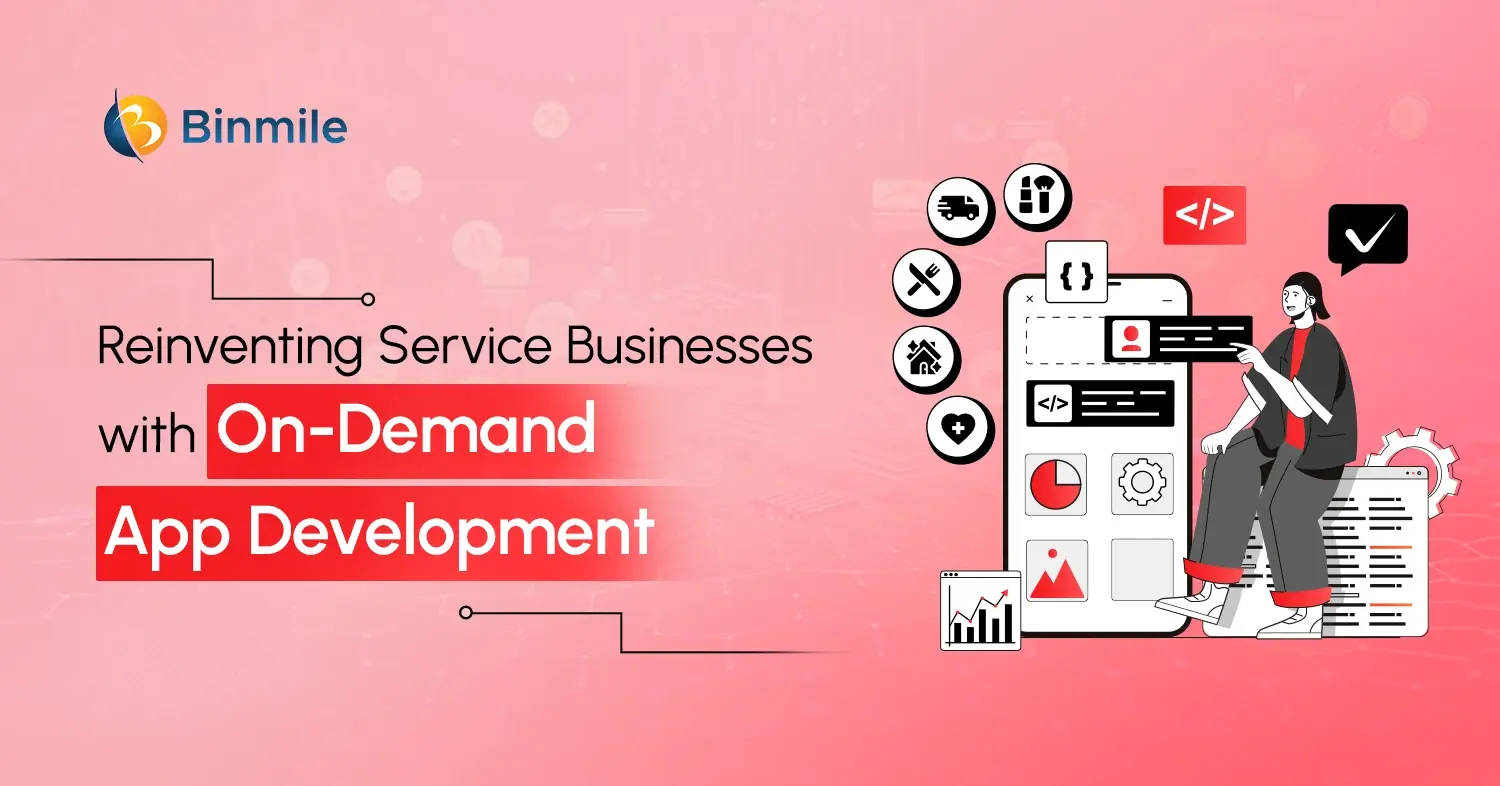An app development framework is a set of integrated tools and components for developing applications and managing their life cycles. These frameworks provide developers with the tools required to create applications with a consistent look and feel across multiple platforms. Additionally, they support various features such as authentication, database connectivity, and third-party services.
Mobile application development frameworks have become essential to the modern world, allowing businesses to create custom applications for their users. The Flutter app development company supports an excellent framework. A report by Statista claims that Flutter is one of the highest-grossing frameworks employed regularly by developers.
This article will overview the top mobile app development frameworks, along with comparing their features and functionalities. It will also discuss the advantages and disadvantages of each framework, helping businesses make the best choice for their mobile app development needs.
Characteristics to Consider Before Going for the Right Framework
1. Platform Compatibility
- React Native: iOS, Android, and UWP platforms
- Flutter: iOS and Android platforms
- Ionic: iOS, Android, Windows, and PWA platforms
- Xamarin: iOS, Android, and Windows platforms
2. UI/UX Support
- React Native: Native-like user experience with reusable components
- Flutter: Attractive UI with material design elements and smooth transitions
- Ionic: Layouts, animations, and custom themes for creating attractive UI/UX
- Xamarin: Native UI/UX components for creating appealing designs
3. Security
- React Native, Flutter, Ionic, and Xamarin: Secure authentication and encryption for data protection
4. Performance
- React Native: Excellent performance with code reusability
- Flutter: Great version with UI rendering
- Ionic and Xamarin: Good performance with native functionalities
5. Scalability
- React Native, Ionic, and Xamarin: Easy scalability with code reusability
- Flutter: Effective scalability via hot reloading
6. Community Support
- React Native, Flutter, Ionic, and Xamarin: Large community of developers and experts
7. Cost
- React Native, Flutter, and Ionic: Free and open-source
- Xamarin: Subscription-based pricing
4 Leading Mobile App Development Frameworks: An Overview

1. React Native
React Native is a library built on javascript and based on React, a javascript library for building user interfaces, and is used for iOS, Android, and Windows platforms. Reactjs allows developers to use React and native platform capabilities to create cross-platform mobile applications.
React Native Framework Top Features
- Cross-platform Compatibility: React Native enables you to build mobile applications for both iOS and Android.
- Hot Reloading: It lets you alter your code and seek results in real time.
- Reusable Components: Reusing and customizing React Native components is a breeze.
- Third-party Libraries: It enables developers to access third-party libraries to extend their project’s capabilities.
- Open-Source: It allows developers to customize their projects.
Additional Features
- Code Push: Code push enables developers to quickly and easily deploy code updates without resubmitting their app to the Play Store/App Store.
- Animations: React Native enables developers to create smooth, high-performance animations.
- Flexbox: React Native utilizes the Flexbox layout system to provide developers with a powerful tool for designing responsive user interfaces.
- Navigation: React Native provides developers with various navigation components and tools.
- Accessibility: React JS app development services enable developers to build applications that are accessible to people with disabilities.
Pros
- JavaScript and ReactJS-friendly
- Native components as building base
- Designed for creating both iOS and Android apps
- Hot reloading feature to view code changes quickly
- Broad library of third-party components and modules
- A massive community of developers to help with any issues
Cons
- More extensive compared to native apps
- Not suitable for apps that require device-specific features or performance
- Limited access to specific native APIs
- Does not support all native UI components
- Difficult and time-consuming debugging
2. Flutter
Flutter uses the Dart programming language and is used across cross-platform mobile applications. It is an open-source application development framework created by Google. Flutter app development allows developers to create native-looking apps for iOS and Android platforms with a single codebase.
Top Features of the Flutter App
- Hot Reload: It enables developers to add features and fix bugs with the Flutter framework.
- Cross-platform Development: It allows developers to write code once and deploy it to both iOS and Android platforms, eliminating the need to maintain two separate codebases.
- Fast Development: Flutter helps developers rapidly build high-performance apps with a single codebase.
- Built-in Widgets: It provides iOS-themed widgets allowing developers to make native mobile apps quickly.
Additional Features
- Accessibility: Flutter provides tools for developers to build apps with accessibility features, ensuring that everyone can use and enjoy the app.
- Backend Integration: The Flutter app development company provides tools for integrating with popular backend services, such as Firebase and GraphQL.
- Platform Adaptability: Flutter allows developers to build responsive and adaptable apps to different screen sizes, orientations, and platforms.
- Testing and Debugging: Flutter provides tools for testing and debugging apps, ensuring they are stable and reliable.
Pros
- Fast development time with a hot reload feature
- Robust and expressive UI with widgets
- Easy to learn and use
- Supports both iOS and Android platforms
- Accessible native features and SDKs
- Open source
Cons
- Limited support for complex UI designs
- Lack of maturity in the framework
- Still in development and not as stable as other platforms
- Lack of official support from Google
- Performance issues on low-end devices
3. Ionic
Ionic is a free, open-source mobile UI framework created by Max Lynch, Ben Sperry, and Adam Bradley. It builds cross-platform mobile applications with HTML, CSS, and JavaScript. Per a survey by Statista, Ionic was used by 16% of developers in 2021.
Ionic Framework Top Features
- Cross-Platform: Ionic enables developers to build apps for multiple platforms, such as Android, iOS, and Windows using one codebase.
- Reusable Components: It offers a library across platforms for a consistent look and feel.
- Accessibility: It provides accessibility features like VoiceOver and TalkBack for users with disabilities.
- Performance: Ionic app development services are optimized for performance and provide a smooth user experience.
Additional Features
- Third-party Integration: Ionic can integrate with various third-party services like Firebase and Stripe for additional features and functionality.
- Security: Ionic provides built-in security features such as OAuth for authentication and secure communication.
- Push Notifications: Ionic offers a push notification service to send users messages.
- Offline Mode: Ionic apps can be designed to work offline, allowing users to access content even when they don’t have an internet connection.
- Analytics: Ionic provides analytics features so developers can monitor user engagement and usage.
![]()
Pros
- Easy to use
- Flexible for custom app development
- Simple navigation
- Supports both iOS and Android
Cons
- Limited platform support
- Not suitable for complex apps
- Limited native functionality
- Potentially inefficient performance on lower-end devices
4. Xamarin
Xamarin is a cross-platform mobile application development platform created by Microsoft. It uses the C# programming language to build iOS, Android, and Windows apps. Xamarin allows developers to write code once and use it across multiple platforms.

Xamarin Framework Top Features
- Native Apps: Xamarin enables developers to build apps for Android, Windows, and iOS using C# and .NET.
- Shared Codebase: Developers can share up to 90% of their code across multiple platforms.
- Cross-platform UI: The Cross-platform app development on Xamarin helps developers create native user experiences with platform-specific UI elements.
- Integrated Development Environment: Xamarin Studio and Visual Studio provide a consistent development environment for both Android and iOS.
Additional Features
- Cloud Deployment: Xamarin development services allow developers to deploy their apps to the cloud, simplifying and speeding up the development process.
- Xamarin Test Cloud: Its Test Cloud feature makes it easy to test apps across multiple platforms and devices.
- Xamarin Insights: Insights by Xamarin provides real-time analytics and crash reporting to help developers diagnose and fix issues quickly.
- Xamarin Component Store: The Xamarin Component Store provides access to third-party components and libraries for Xamarin apps.
Pros
- Cross-platform support for iOS, Android, and Windows
- Integration with existing .NET code
- Support for popular languages like C# and F#
- Visual Studio IDE integration
- Easy access to native APIs
Cons
- Limited third-party library support
- Restricted performance capabilities
- Potentially high costs for enterprise-level apps
- Difficulty debugging some native components
Why Choose Binmile for Mobile Application Development Services
All of these frameworks play a distinct role in fulfilling one or more key operations. While Flutter can offer an excellent fit with its revolutionary transitions and scalability features, Ionic offers multiple compatibility features and custom UI/UX. When looking for a top app development companies, you must ensure that simplicity is your ultimate goal.
Binmile has a team of experienced professionals who specialize in developing high-quality mobile applications to meet the specific needs of their clients. If you’re searching for mobile application development services, get your assistance from Binmile. Whether you’re looking for Flutter, React Native, Ionic, Xamarin, or any other framework for your company’s requirements, Binmile is here to help.
Common Queries Answered
Several frameworks that are not mentioned in the blog are Swift (for iOS) and Kotlin (for Android).
- Swift (for iOS): A programming language used with the iOS SDK to build apps for Apple devices.
- Kotlin (for Android): A modern programming language for Android development, supported by Google.
A mobile UI framework is a set of tools and libraries designed to help developers create user interfaces (UI) for mobile applications. It provides pre-designed components, templates, and functionalities that streamline the process of building visually appealing and interactive app interfaces.
A framework is used to streamline the development process by offering a predefined structure, standardized rules, and reusable components. It eliminates the need to start projects from scratch, enabling developers to focus on building features rather than foundational elements. By using frameworks, software teams can accelerate the development lifecycle, minimize errors, maintain consistency, and leverage existing resources effectively.









